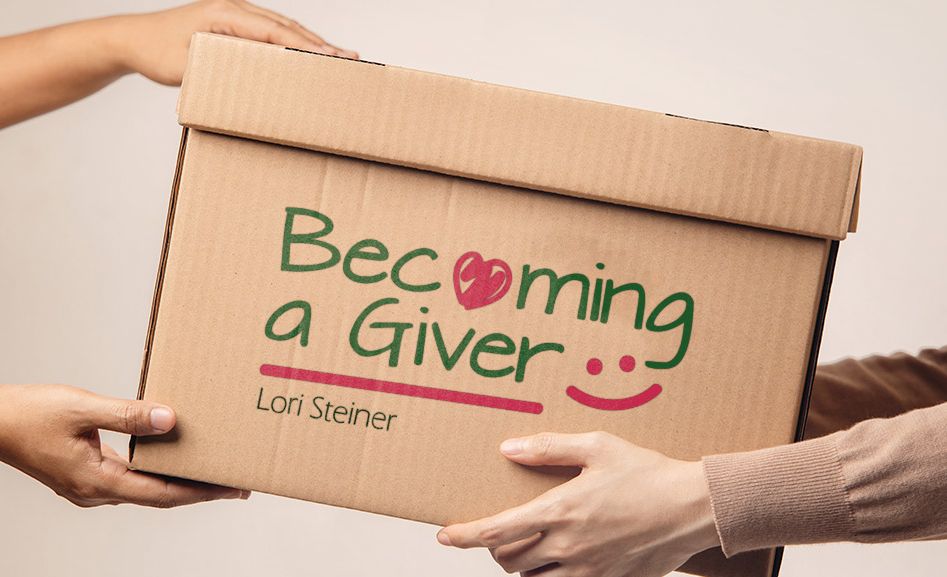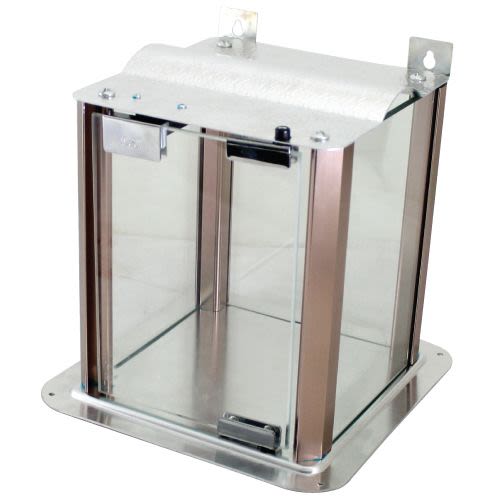
Self-Evaluation
Self-evaluation is a phenomenal tool in life. Experienced self-evaluators excel in their relationships with others, because first and foremost...

Self-evaluation is a phenomenal tool in life. Experienced self-evaluators excel in their relationships with others, because first and foremost, they’re happy with themselves.
Stage Two: Self-evaluation
After observation comes the stage of self-evaluation.
Self-evaluation is the art of judging yourself. It’s not easy, but it’s certainly rewarding. Self-evaluation is an entire courtroom within your mind – judge, jury, witnesses, defending attorneys, and prosecutors.
Everything you’ve observed in stage one comes to stage two as evidence. The better the evidence, the better your mental court can reach a just decision. A civil court refuses to accept flimsy evidence and untruthful material. Why should you?
Self-evaluation is a phenomenal tool in life. Experienced self-evaluators excel in their relationships with others, because first and foremost, they’re happy with themselves. Since cogent observation is the prerequisite of self-evaluation, self-evaluators are attentive to their environment, aware of others, and good listeners as well. As a result, most people feel a strong affinity for self-evaluators.
Rebbe Nachman of Breslev teaches that self-evaluation is the best prevention of future suffering.
A heavenly court judges the world in general and each person in particular, every single day. All court decisions must receive the final approval of The Almighty, who is much more merciful and compassionate than the court is. Frequently, God delays the implementation of an unfavorable decision against a person, to give that person an opportunity for self-evaluation.
When a person mends his or her ways, God cancels the verdict altogether. Double jeopardy is illegal in the heavenly court. Therefore, when a person admits guilt after self-evaluation, he or she has in effect conducted his or her own mental courtroom. The heavenly court is no longer allowed to try the case. If the court has already tried the person, but has not yet activated the sentence, then the sentence is nullified.
If a person makes no change in the behavior that led to a guilty verdict, then the spiritual sentencing manifests itself in some type of affliction in this world. The resulting suffering from a person’s own deeds is therefore self-induced.
The prevention mode of self-evaluation – judging yourself before the heavenly court judges you: The minute a person begins to evaluate himself, God sends an urgent message that forbids the Heavenly court from passing judgment on the self-evaluator. Again, The Almighty prohibits double jeopardy. When a person judges himself truthfully, the Heavenly court is not allowed to touch the case.
When a person decides to improve in some way, two things happen: One, The Almighty grants the person’s decision the validity of a Heavenly court decision. Two, all punishment is cancelled. As soon as a person decides to improve – even if the decision hasn’t been fully implemented – God no longer needs to use punitive stimuli to stimulate that person’s improvement. Also, God takes keen interest in a person’s self-evaluation, and always listens when a person judges himself. Consequently, self-evaluators are close to God.
The elimination mode of self-evaluation – judging yourself after the heavenly court judges you: Truthful self-evaluation can also cancel existing suffering, but with a lot more effort. As in medicine, preventing sickness is easier than curing sickness. Rebbe Nachman of Breslev emphasizes though, never despair! If you believe that it’s possible to ruin your life, believe that it’s possible to repair your life!
Let’s examine two examples of self-evaluation; the first before a heavenly verdict, and the second after a heavenly verdict has already taken effect.
Example one: Self-evaluation before a heavenly verdict. Don Adams, CPA, is trying his best to cope with the tax-season workload. His secretary buzzes his office; a representative of the Crippled Children’s Fund is on the line, waiting to speak to him. Don refuses to take the call – taxes come first.
Don returns to the file at hand, tries to work for the next half hour, but can’t concentrate. He sits back in his chair, takes a deep breath, and closes his eyes. Mental court is now in session…
Don Adams’ Mental Court Hearing
The prosecution begins, reminding Don that he’s made more money this year than any previous year in his career. He’s enjoyed great health. “Where’s your gratitude? Mr. Too-busy doesn’t have three minutes to hear the needs of crippled children! Where did you get the time to go bowling last night? For that, you weren’t too busy,” claims the mental prosecutor.
Mental court now hears the side of the defense: “A person has the right to a few hours of exercise and relaxation after eleven hours of tax returns. As far as good health and good income – true, I concede.”
Don was ashamed of himself. What a shabby defense. True, I had time for bowling but I didn’t take time for charity. Am I really such an ingrate? How many people in the world have my good fortune? I should be more sensitive to others less fortunate, like the crippled children of our city…
The judge summarizes the case, and tells the jury to come to a quick verdict. The mental jury deliberates for eleven seconds, and the jury spokesman declares: Don should immediately phone the Crippled Children’s Fund, and pledge five hundred dollars. The judge raps with his gavel, case is closed. The total time elapsed in self-evaluation – five minutes.
Don returns the call to the Crippled Children’s Fund, apologizes for not taking their call, and pledges five hundred dollars.
Meanwhile, he doesn’t realize what’s transpired in the Heavenly court. His refusal to take the charity call triggered an immediate demand for Heavenly justice. The Heavenly prosecution claimed that such a person doesn’t deserve health and wealth. Just as the court agreed to accept the case, an urgent message arrived from The Almighty – halt the proceedings! The case is out of your jurisdiction! Don Adams is in the middle of judging himself…
Later that evening, Don mails a check to the Crippled Children’s Fund. He feels elated. If he knew the extent of suffering that his competent self-evaluation prevented, he’d be dancing all night.
Example two: Self-evaluation after a heavenly verdict: Margie Wilson lost her job as quality-control inspector of a plastic goods manufacturer after sixteen years with the firm. Her boss informed her that the company’s streamlining program called for a forty percent layoff of the production crew.
Margie’s face turned a bright crimson. She quickly reached her boiling point: “Streamline?!” she shrieked, “If you want to streamline, then why don’t you cut back on the fleet of cars that the freeloading office staff drives! What’s going on here? You people care more about chunks of metal than you do about your personnel!”
Margie was furious, heartbroken, and confused. Instead of driving home, she drove to the beach. She walked barefoot on the shore, and let the late-afternoon winter sun and the saltwater breeze sooth her. The shore was deserted. The beauty and tranquility of the Pacific coastline made her feel very close to God. Her mind felt crystal clear.
Margie picked up a clam shell, and examined its inner loveliness. “Time to examine myself,” she thought. “Help me understand, dear God, why I got fired.” She gazed at the waves in the distance, and let her mind wander. At this point, her mental court session began…
Margie Wilson’s Mental Court Hearing
The prosecution presented the following evidence: Margie’s daughter Pamela, a sophomore at Berkeley, came home a month previously during semester break. She asked to use her mother’s new car. Margie reluctantly agreed, but gave her daughter a stiff warning to be careful with the car.
While Pamela and two girlfriends were having lunch at a local restaurant, a careless truck backed into the car, parked outside in the restaurant lot, and dented the back fender. The truck vanished.
Pamela came home in tears. She was deathly afraid of her mother’s reaction. Her worries were justified.
When Margie saw the dent, she flew into a rage that would have registered 7.5 on the Richter scale. Pamela tried to explain what happened. Her furious mother cut her short, admonished her, and accused her of fabricating the hit-and-run story.
“Mom,” Pamela pleaded between sobs, “Did I ever lie to you? Mom, please, does a fifty-dollar dent in a fender take precedence over your daughter’s feelings, your relationship with your own flesh and blood? I-I can’t believe that my own mother cares more about a chunk of metal than she does about me!”
A chunk of metal! “That’s it!” thought Margie, her hands trembling and a cold sweat breaking out on her forehead. “I deserve what I got. What a thoughtless, heartless mother I am! Pamela’s words were almost identical to what I told the personnel manager. I hated what the company did to me, yet I did the same thing to my own daughter. I got a taste of my own bitter medicine. Thank you, God, for helping me understand Your infinite wisdom and justice. Help me to be a better mother. Help me delete the anger from my life!”
The next day, Margie drove three hours down the coast to Berkeley, and surprised Pamela with a care package of her favorite goodies. They spent an unforgettable afternoon together. Margie apologized from the bottom of her heart about the car episode. Pamela lacked words to express her gratitude at her mother’s thoughtfulness.
A week later, Margie, received a call from the personnel manager: “Margie, the company wants you back. You’ll be paid for last week’s layoff, and as of tomorrow, your salary increases by ten percent. A deal?”
Margie closed her eyes and thanked God. The Almighty, by virtue of Margie’s self-evaluation, repealed the heavenly sentence of two years unemployment.
To be continued…
(The Trail to Tranquility is available in the Breslev Store.)











Tell us what you think!
Thank you for your comment!
It will be published after approval by the Editor.